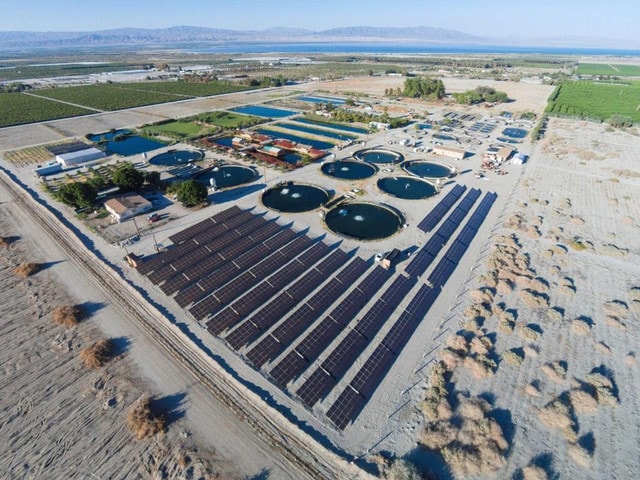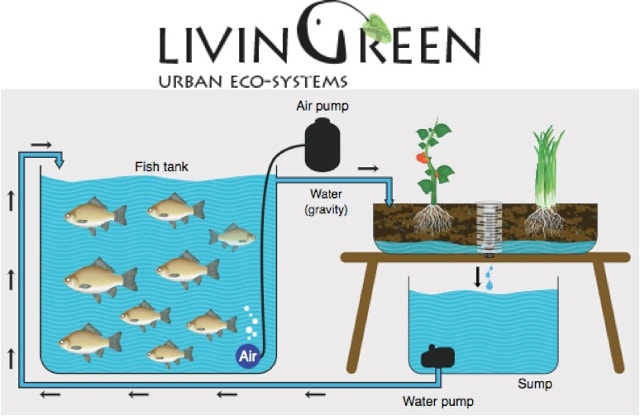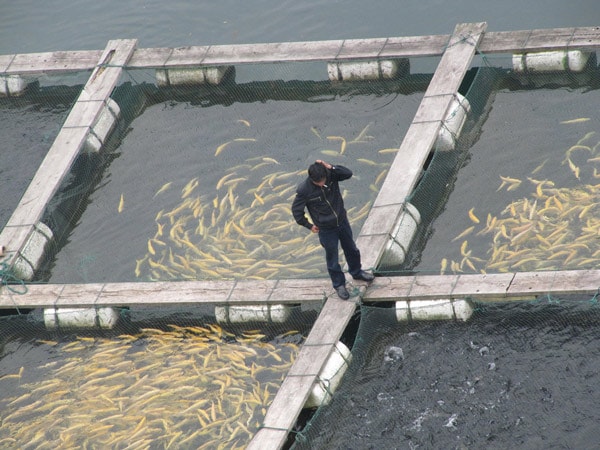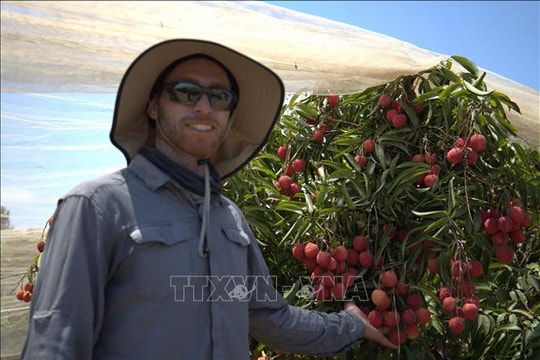Israel's desert fish farming technology makes the world admire
More than half of Israel's area is desert, the climate is not favorable, lack of water but the Jews have made the world admire with fish farming technology in the desert. Not only can they provide enough fish for domestic needs but also export to other countries in the world.
Agriculture is a highly developed industry in Israel: This country is an important exporter of fresh products, a world leader in agricultural technology, although natural conditions are not favorable for agricultural production, however this country always knows how to apply high technology to improve the productivity and quality of agricultural products.
 |
| Fish farm in the desert |
Israel is also known as the “Silicon Valley” of the world in the field of agriculture and water technology. Only 1.7% of the population works in agriculture, but every year Israel exports approximately 3.5 billion USD worth of agricultural products, making it the world’s leading agricultural exporter.
According to Mr. Dotan Bar-Noy - CEO of GFA Company, in recent years, rampant fishing has greatly affected marine resources. If there is no appropriate action to prevent it, many saltwater fish species will disappear completely.
Mr. Dotan Bar-Noy, along with more than 30 other people, mainly engineers and marine biologists, combined with folk techniques, found a new solution to help reduce the indiscriminate fishing that has caused the species and quantity of marine fish to decrease as it is today. That is a new technology that can allow marine fish farming on land, especially in the desert. This is a system that uses biological filters and special bacteria to treat wastewater produced during the fish farming process, so it does not affect the environment.
After independence, geological surveys and water resources were conducted in desert and semi-desert areas such as the Negev. Israelis have made efforts to find methods to extract salt water from underground and build water recycling systems to combine aquaculture and agriculture, maximize water use efficiency, and reclaim and reclaim land from the desert.
Israeli fish farms reuse 99% of the water and filter fish waste to fertilize plants. Wastewater from the fish ponds goes through a complex recycling system to clean out toxins and sludge, then is reused in the fish ponds.
 |
| This Jewish system can be used anywhere on land as long as there is a certain starting water source. |
The waste from the fish pond can be used as nutrients for plants, but this closed system still needs to be cleaned about once a year due to sludge sticking to the filter net and machinery.
One factor that fish farmers are very worried about is the problem of disease. However, in these closed fish farms, the source of disease usually only comes from new batches of fish when brought to the farm, while natural factors and wild fish will be very low.
One of the key success factors of fish farming in Israel is the technology to identify groundwater resources and optimize water use to the drop, allowing people to farm fish in the desert with limited water.
In addition, due to limited water resources, Israelis often store water in the winter to use for agriculture in the summer. Taking advantage of this, fish farms have used stored water for aquaculture, providing additional food while still ensuring the amount of water supplied for agriculture in the summer.
Regarding environmental pollution and ecosystems, Israel applies a very strict water treatment system, while raising people's awareness of saving water and protecting the environment.
The Israeli government also provides special support for investments in agriculture or aquaculture. Up to 24% of all government support goes to agriculture and aquaculture projects and businesses in this sector are exempt from all import duties.
Today, thanks to those early efforts, “more than a dozen massive fish farms have been built in various parts of the Negev,” writes Shmuel Rothbard. Water is piped from underground to raise fish and then used to irrigate crops.
Fish ponds are now found all over Israel, and new fish species have been introduced. Israelis raise carp, tilapia, grass carp, flathead mullet, bass, silver carp, trout, and several ornamental fish species.
 |
| Israel is also known as the "Silicon Valley" of the world in the field of agriculture and water technology. |
However, the Israeli fish farming industry is not without its challenges. “Many farms in the Galilee region have been abandoned due to high water prices,” said Yossi Yaish, secretary of the Israel Fish Farming Association. “The Galilee region has a source of potable fresh water, and it is no longer possible to use that precious water for fish farming.”
The key to Israel’s aquaculture success lies in knowing where water is abundant and how to maximize the benefits of every drop. The country’s most important technological advancement in aquaculture has been the realization of the desire to raise fish in the scarce strategic water reserves in the smartest way.
Furthermore, the focus on fish quality has helped Israel improve its native freshwater fish species. The fish farming industry in Israel currently produces 20,000 tons of fish each year. With current prices of about $3.50/kg, the industry has a turnover of $70 million/year. Fish farmers in this country hope to soon dominate the European market, diversify their products, and even develop aquaculture tourism.
According to khoahoc.tv




